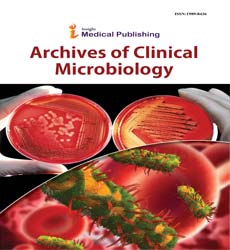Abstract
Diagnostic Metagenomics as Diagnostic Tools in Infectious Diseases
Treatment of infections with culture-negative results represents a challenge to clinicians. Culture-independent broad-range nucleic acid sequencing methodologies capable of identifying pathogens at the genomic level have emerged as powerful diagnostic tools. While traditional Sanger sequencing only allows a single target detection, Metagenomic Next-Generation Sequencing (mNGS) enables the detection of all types of organisms, including viruses, bacteria, fungi, and parasites, in a single-assay. Its potential for broad-range pathogen detection with high sensitivity offers a diagnostic opportunity for patients with a widerange of differential diagnoses. Currently there is no FDA-approved metagenomic diagnostic test. Clinical laboratories face many obstacles in implementing mNGS assays. Streaming sequencing process, developing and validating a comprehensive database, and standardizing the bioinformatics pipelines for data analysis are among the challenges to be addressed. When the technology becomes more readily available in clinical laboratories, its value for improving infectious diseases diagnosis will be realized.
Author(s):
Kendall Kling, Teresa Zembower and Chao Qi*
Abstract | Full-Text | PDF
Share this

Abstracted/Indexed in
- Google Scholar
- Open J Gate
- Genamics JournalSeek
- The Global Impact Factor (GIF)
- Open Archive Initiative
- China National Knowledge Infrastructure (CNKI)
- Scimago
- Directory of Research Journal Indexing (DRJI)
- WorldCat
- Proquest Summons
- Publons
- MIAR
- ResearchGate
- University Grants Commission
- Geneva Foundation for Medical Education and Research
- Secret Search Engine Labs
Open Access Journals
- Aquaculture & Veterinary Science
- Chemistry & Chemical Sciences
- Clinical Sciences
- Engineering
- General Science
- Genetics & Molecular Biology
- Health Care & Nursing
- Immunology & Microbiology
- Materials Science
- Mathematics & Physics
- Medical Sciences
- Neurology & Psychiatry
- Oncology & Cancer Science
- Pharmaceutical Sciences

